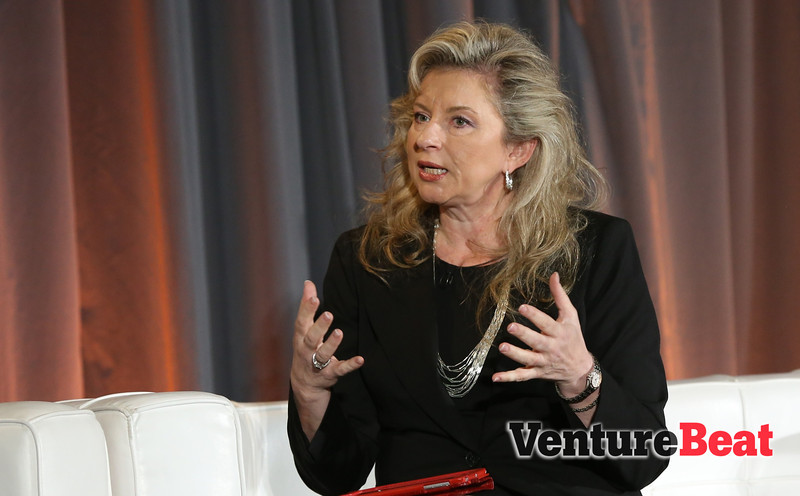
Communication is one of the biggest challenges facing health care today. Doctors cannot use e-mail, social media networks, or SMS texting to discuss patients because it violates privacy regulations, and electronic medical record (EMRs) systems are generally incompatible with each other, which makes the secure exchange of information even more difficult.
[aditude-amp id="flyingcarpet" targeting='{"env":"staging","page_type":"article","post_id":741561,"post_type":"story","post_chan":"none","tags":null,"ai":false,"category":"none","all_categories":"business,cloud,enterprise,mobile,","session":"C"}']At VentureBeat’s HealthBeat today, Verizon managing principal of connected health care solutions Nancy Green explained how Verizon can benefit the health care community.
“When you think of Verizon, you think of our wireless network. But we have a $6 billion health care practice and a chief medical officer ,” Green said onstage. “We are moving and enabling the business of health care so others can innovate. We have experts on compliance and security, and startups can use the size and scope and scale of Verizon to make a difference.”
AI Weekly
The must-read newsletter for AI and Big Data industry written by Khari Johnson, Kyle Wiggers, and Seth Colaner.
Included with VentureBeat Insider and VentureBeat VIP memberships.
Security and authentication are major concerns when it comes to medical communication. Green said that 27 countries, the White House, and the U.S. nuclear launch codes are secured by Verizon. The company knows how to do security and authenticate people, and it is applying this expertise to the health care. Verizon has credentialed every clinician and physician in the United States and provide a secure channel for transmitting data, such a prescriptions. An example is Verizon’s work with Surescripts to support electronic prescriptions and set up digital signage on devices. From their iPads and iPhones, doctors can sign in using a passcode, authenticate their identity, write, confirm, and accept prescriptions, and digitally sign documents. Verizon’s “exchange layer” moves the information securely from network to network (doctor to pharmacy) so doctors don’t have to visit a terminal or use pen and paper.
Verizon’s dual persona technology is also particularly useful in the medical field. Doctors often use their personal mobile devices for work and Green said that it is a struggle to securely manage patient data on phones and keep it separate from personal information. Through an exclusive partnership with VMware, Verizon has a solution that can lock down the enterprise/clinical side of phones.
To quote Voltaire (or Uncle Ben from Spider-Man), with great power comes great responsibility. Verizon has a network of 115 million people and a huge telecommunications infrastructure, and Green said the company is committed to supporting entrepreneurs and ideas that use this power for good. So is competitor AT&T, which also has health care solutions. Both companies see opportunities in an industry that makes up 17 percent of the GDP and relies heavily on mobile and telecommunication technology. These opportunities also extend beyond mobile health technology. In March, Verizon announced its new cloud service for health data exchange and a partnership with HealthSpot to power tele-medicine kiosks in the field.
Photo Credit: Michael O’Donnell/VentureBeat
VentureBeat's mission is to be a digital town square for technical decision-makers to gain knowledge about transformative enterprise technology and transact. Learn More
